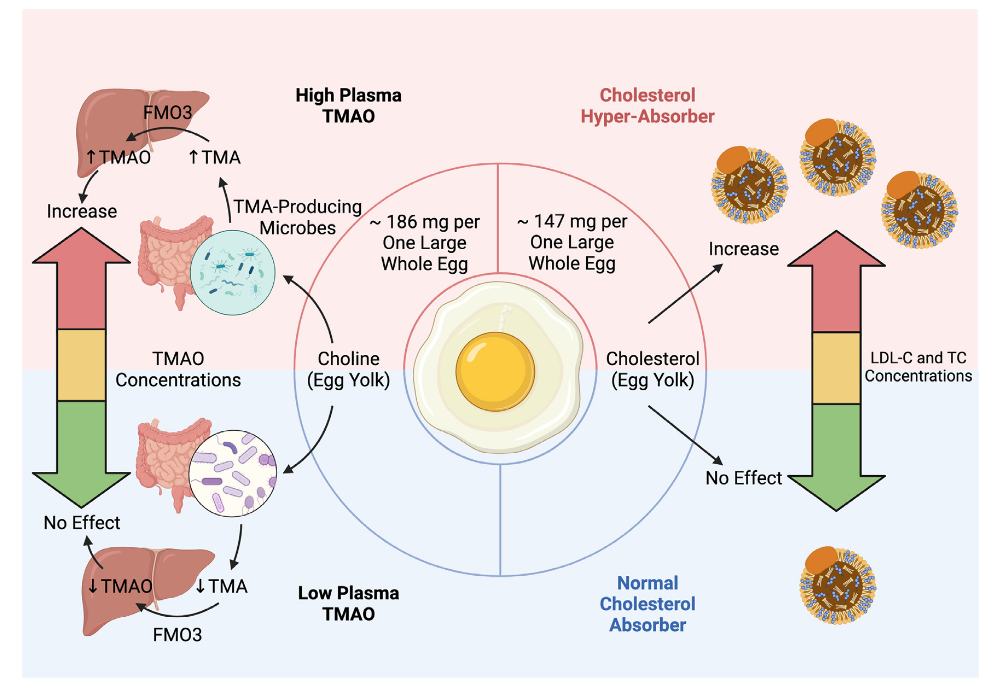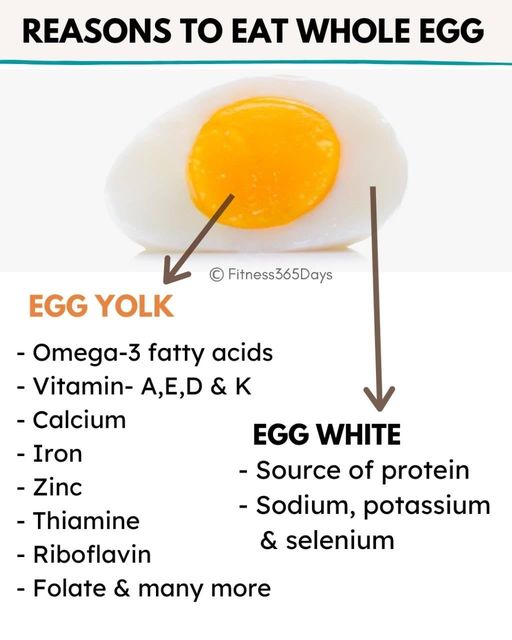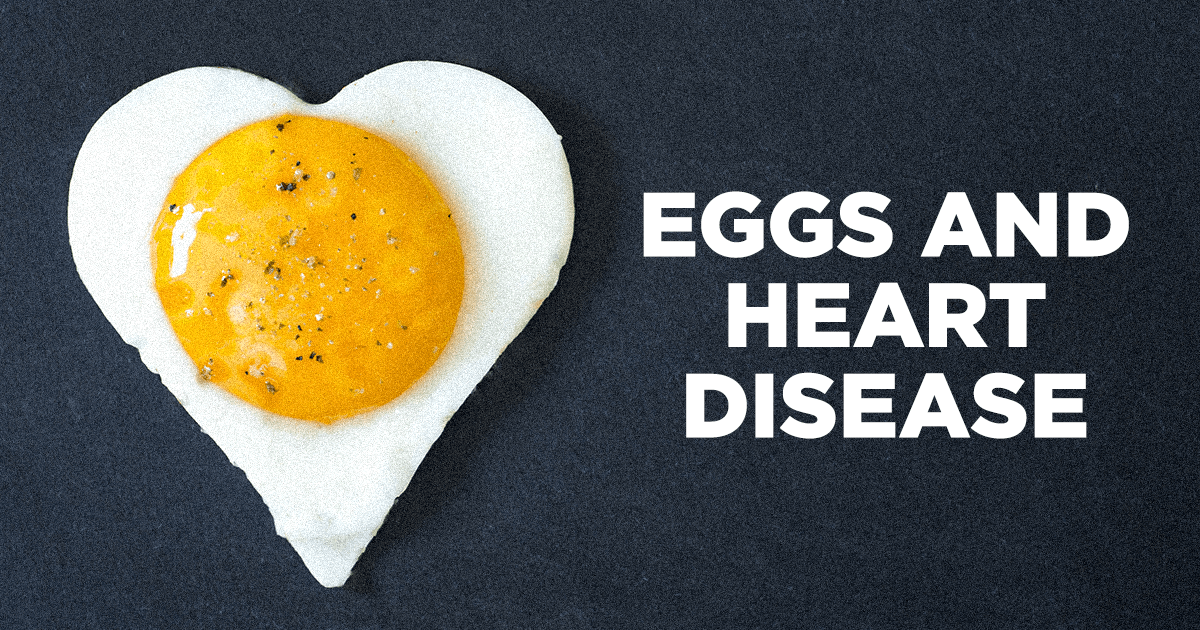INTRODUCTION
There is nothing quite like the sound of eggs crackling on the frying pan, the smell of bacon, and coffee brewing in the morning. I couldn’t think of a better way to greet the day. And there are so many ways to cook those eggs, it’ll keep you from getting bored with them for sure. And yet, we find the media going back and forth on whether they are “good” for us. Can’t they just make a decision?
WHY ARE EGGS CONSIDERED TO BE SO HEALTHY?
On one hand, eggs have been touted as a super food because they are nutritionally dense.1 If you are wondering what nutrient density is, it can be defined as foods that are high in nutrients (i.e., protein, healthy fats, vitamins, minerals, trace elements) while being low in calories.2 In the case of eggs, they are nutritionally dense because they contain:
- Macronutrients: eggs are rich in protein (6-7 grams) while only containing about 80 calories.3
- Micronutrients: eggs also contain zinc, choline (supports function of the liver, muscle, and nervous system), antioxidants, vitamin D, selenium, calcium, magnesium, phosphorous, potassium, sodium, a host of B vitamins, vitamin A, vitamin E, and vitamin K.1(2),3(1),4,5
A SMIDGE MORE ON THE NUTRIENTS IN EGGS
Here are links on other articles I wrote regarding some of the macronutrients and micronutrients listed above:
LINK: Essential Amino Acids and Why They Matter
LINK: Zinc: Function and Deficiencies
LINK: Antioxidants and Tracking Antioxidant Stress
LINK: Selenium: Function, Deficiencies, and Best Sources
LINK: Vitamin D: Types, Utility, Screening, and Optimal Dosing
LINK: Magnesium and Essential Functions
LINK: Potassium and Deficiencies
LINK: Electrolytes: Managing Hypertension
LINK: Vitamin A: Signs and Symptoms
LINK: Vitamin E and Oxidation
LINK: Vitamin K2 Function
WHY DO SOME PEOPLE SAY EGGS ARE BAD FOR YOU?
Zhang et al6 analyzed 29 systematic reviews which assessed the association between egg consumption and human health, to include cardiovascular risk. Overall, there were no beneficial/harmful associations between egg consumption and poor health outcomes such as brain cancer, non-Hodgkin’s lymphoma, prostate cancer, bladder cancer, and colorectal adenomas.6(9)
Some studies suggested adverse associations with eggs and ovarian cancer, gastrointestinal neoplasms (abnormal tissue growth), and heart failure.6(9) However, another group of studies found beneficial associations with egg consumption and hypertension/stroke. In both cases, studies were of low/moderate in quality evidence, making interpretation difficult.6(9)
WON’T EGGS INCREASE MY CHOLESTEROL AND DAMAGE MY HEART?
It was originally thought that consuming cholesterol would increase blood cholesterol (kind of makes sense right?). However, intervention studies have indicated that consumption of cholesterol from eggs (2-3 eggs/day) does NOT increase blood cholesterol levels.3(1,) Such evidence has caused the removal of dietary cholesterol restriction of 300 mg/day from US Dietary Guidelines.3(2) However, some people still don’t do well with eggs. How could this be?
IT’S THE LITTLE DIFFERENCES
- Some individuals carry genes that are a little different (called polymorphisms) from most people causing the gut lining to absorb excessive levels of cholesterol from food, including eggs.3(1) These particular polymorphisms are found in genes known as ABCG5 and ABGC8.3(1)
- Another driver of cardiovascular problems comes the presence of certain gut bacteria to include Anaerococcus hydrogenalis,Clostridium asparagiforme, Clostridium hathewayi, Clostridium sporogenes, Edwardsiella tarda, Escherichia fergusonii, Proteus penneri, and Providencia rettgeri that are found in the human gut.7 These bacteria (along with liver enzymes like flavin-containing monooxygenase-3 activity) produce a product (i.e., the fancy term is a metabolite) known as trimethylamine-N-oxide (TMAO).3(2),7(3)

- TMAO is problematic because observational and experimental studies have suggested it can damage the lining of blood vessels (fancy term is endothelial inflammatory injury).7(1) That means people with certain gut bacteria are at higher risk for vascular issues. This is especially true when the same people consume foods rich in choline and L-carnitine (i.e., eggs, poultry, fish, red meat); the ingredients that these particular bacteria need to produce TMAO.7(3)
OKAY…SO DO I EAT EGGS, OR DON’T I EAT EGGS?
I would encourage implementations of eggs as part of a whole food diet, along with routine blood tests each year to monitor many key markers of health, including lipid panels. People will benefit greatly from the implementation of nutrient dense foods in the diet, to include eggs.
If we are really concerned about dyslipidemia (i.e., abnormal cholesterol levels) there are foods, environmental, and lifestyle factors that are indeed well known to drive cardiovascular-related issues. See below
LINK: Processed Foods, Cardiovascular Disease, and Insulin Resistance
LINK: Inadequate Sleep and Health Outcomes
LINK: Heavy Metals and Hypertension: How Saunas Can Help
LINK: Plastics and Negative Health Impacts
CONCLUSION
I hope I helped clear up how eggs can be quite beneficial, and when they might work against your health. If people pay attention to exercise, nutrition, and recovery methods every day with routine blood tests, I think most people will motor along quite well. Get after it!
References
1. Zhang X, Lv M, Luo X, et al. Egg consumption and health outcomes: a global evidence mapping based on an overview of systematic reviews.Ann Transl Med. 2020;8(21):1-13. doi:10.21037/atm-20-4243.
2. American Heart Association. How Can I Eat More Nutrient Dense Foods? American Heart Association. https://www.heart.org/en/healthy-living/healthy-eating/eat-smart/nutrition-basics/how-can-i-eat-more-nutrient-dense-foods#:~:text=The%20basic%20concept%20of%20nutrient,get%20for%20the%20calories%20consumed. Updated November 2, 2021. Accessed August 31, 2023.
3. Kang JW, Zivkovic AM. Are eggs good again? A precision nutrition perspective on the effects of eggs on cardiovascular risk, taking into account plasma lipid profiles and TMAO.J Nutr Biochem. 2022;100:1-5. doi:10.1016/j.jnutbio.2021.108906.
4. Kansakar U, Trimarco V, Mone P, Varzideh F, Lombardi A, Santulli G. Choline supplements: An update. Front Endocrinol. 2023;14:1-11. doi:10.3389/fendo.2023.1148166.
5. Kuang H, Yang F, Zhang Y, Wang T, Chen G. The impact of egg nutrient composition and its consumption on cholesterol homeostasis.Cholesterol. 2018;2018:1-22. doi:10.1155/2018/6303810.
6. Zhang X, Lv M, Luo X, et al. Egg consumption and health outcomes: a global evidence mapping based on an overview of systematic reviews.Ann Transl Med. 2020;8(21):1-13. doi:10.21037/atm-20-424.3
7. Liu Y, Dai M. Trimethylamine n-oxide generated by the gut microbiota is associated with vascular inflammation: New insights into atherosclerosis.Mediators Inflamm. 2020;2020:1-15. doi:10.1155/2020/4634172.
-Michael McIsaac







